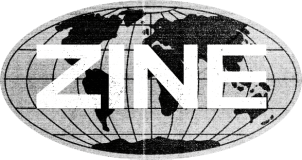AI & Our Unconscious: Using Dream Data To Decode Culture
What 5,000 dreams about AI reveal about our relationship to it
The following piece is a collaboration between Dr. Emily Cook + Matt Klein + Will Cady.
Dr. Emily Cook is an organizational psychologist and dream researcher applying psychological science to workplace strategy through her work with the Center for Organizational Dreaming. She holds a PhD in Cognitive Neuroscience from the University of London and is a member of the American Psychological Association, British Psychological Society, and International Association for the Study of Dreams.
Will Cady walks the threshold between cultures online, offline, and out of line. Cady recently released his book, Which Way Is North: A Creative Compass for Makers, Marketers, and Mystics to explore methods of meaning-making in media and their relationship to our cultural well-being borne from his experience launching Reddit’s internal creative strategy agency, KarmaLab. His latest venture, HEAL MVMNT, supports human creativity in a world gone AI.
AI is no longer confined to the realms of technology, business or our everyday discourse. It’s infiltrated our unconscious.
In partnership with ZINE, Dr. Emily Cook recently analyzed +5,000 publicly shared AI-related dreams from the last 15 years, revealing the nuanced and unconscious ways AI is emerging as an omnipotent force, a companion and second self. The dreams represent a symbolic negotiation of adaptation, mapping the emotional terrain of disruption and disclosing the trajectory of our relationship with technology.
As Carl Jung, the psychiatrist and psychologist who founded analytical psychology — a pioneer in unconscious theory — put it,
“Dreams are the facts from which we must proceed... impartial, spontaneous products of the unconscious psyche, outside the control of the will.”
And for Montague Ullman, a psychiatrist, psychoanalyst and founder of the Dream Laboratory in New York,
“Dreams are letters to ourselves that we write every night but seldom take the time to read.”
So, let us study these letters as unbiased data.



